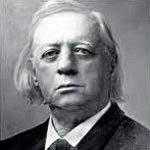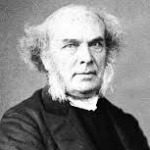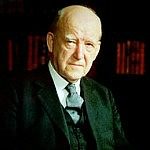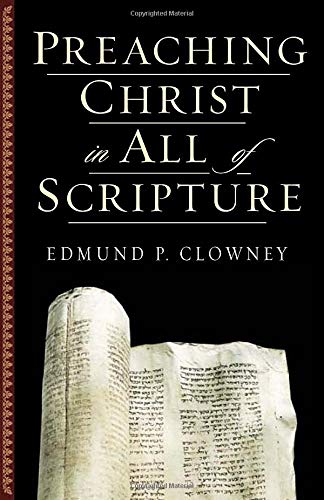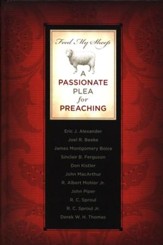Quotes about Preaching-Purpose
The purpose of preaching, then, is to effect changes among the members of God’s church that build them up individually and that build up the body as a whole. Individually, good pastoral preaching helps each person in the congregation to grow in his faith, conforming his life more and more to biblical standards. Corporately, such preaching builds up the church as a body in the relationship of the parts to the whole, and the whole to God and to the world.
Preaching with a Purpose, Zondervan, 1982, p. 13. Get this book!
A sermon is not like a Chinese firecracker to be fired off for the noise it makes. It is a hunter’s gun, and at every discharge he should look to see his game fall.
Quoted by Curtis C. Thomas, Practical Wisdom for Pastors, Crossway Books, 2001, p. 239.
The object of the Christian ministry is to convert sinners and to edify the body of Christ. No faithful minister can possibly rest short of this. Applause, fame, popularity, honor, wealth – all these are vain. If souls are not won, if saints are not matured, our ministry itself is vain. The question, therefore, which each of us has to answer to his own conscience is, “Has it been the end of my ministry, has it been the desire of my heart to save the lost and guide the saved? Is this my aim in every sermon I preach, in every visit I pay?”
I go out to preach with two propositions in mind. First, everyone ought to give his life to Christ. Second, whether or not anyone gives Him his life, I will give Him mine.
The task of the preacher is to comfort the afflicted and afflict the comfortable.
What the church lacks today is not quantity but quality in her pulpits. A strong case can be made that we presently have too many men in pastoral ministry; too many who have taken the mantle of leadership upon themselves without having been selected and formed by God for that purpose. They preach, but not with power and often not with truth; they lead, but not from the platform of a life of godliness, holiness, and prayer; and slowly these men are changing the face of pastoral leadership. What once was a ministry of humble dependence upon God and his Word is more and more becoming a position of power and influence dependent upon marketing strategies, programming innovations, and an increasing infatuation with technology and culture. The image of a pastor as a servant-teacher is fast being replaced with that of a Chief Executive Officer whose knowledge of modern organizational theory and communication technique is more highly prized than his commitment to praying and preaching.
Appointed to Preach, Christian Focus Publications, 1999, p. 22. Get this book!
The herald-preacher has a three-fold responsibility: To be faithful to the one by whom he has been appointed by keeping his character blameless and above reproach; to be faithful in delivering the message as it has been entrusted to him being careful to tell the truth, the whole truth, and nothing but the truth; and to be faithful in going out to the audience for whom the message proclaimed is the only hope of eternal salvation.
Appointed to Preach, Christian Focus Publications, 1999, p. 28. Get this book!
When a minister goes into the pulpit, he is a shepherd in the act of feeding, and if every minister had borne this in mind, many a sermon would have been other than it has been. The curse of the pulpit is the superstition that a sermon is a work or art and not a piece of bread or meat
Teach in Thy church, not to get the applause of the people, but to set in motion the groan; the tears of the hearers are Thy praises.
That is what preaching [the Bible] is meant to do. It addresses us in such a manner as to bring us under judgment; and it deals with us in such a way that we feel our whole life is involved, and we go out saying, “I can never go back and live just as I did before. This has done something to me; it has made a difference to me. I am a different person as the result of listening to this.”
Preachers and Preaching, Zondervan, 1971, p. 56. Get this book!
What is the chief end of preaching? I like to think it is this: It is to give men and women a sense of God and His presence.
Quoted by Curtis C. Thomas, Practical Wisdom for Pastors, Crossway Books, 2001, p. 74.
The preacher is not a chef; he’s a waiter. God doesn’t want you to make the meal; He just wants you to deliver it to the table without messing it up. That’s all.
Principles for an Effective Missionary – Part 1, Matthew 10:5-7, code 2277 www.gty.org. © 1969-2008. Grace to You. All rights reserved. Used by permission.
For at the heart of Christian ministry must always be the molding of people into the image of Christ, and the full and faithful teaching of God’s truth is the means the Spirit uses to accomplish this goal.
This is somewhat of the word which He now speaks unto you: Why will you die? Why will you perish? Why will you not have compassion on your own souls? Can your hearts endure, or can your hands be strong, in the day of wrath that is approaching?… Look unto Me, and be saved; come unto Me, and I will ease you of all sins, sorrows, fears, burdens, and give rest to your souls. Come, I entreat you; lay aside all procrastinations, all delays; put me off no more; eternity lies at the door…do not so hate Me as that you will rather perish than accept of deliverance by Me. These and the like things does the Lord Christ continually declare, proclaim, plead and urge upon the souls of sinners… He does it in the preaching of the Word, as if He were present with you, stood amongst you, and spoke personally to every one of you… He has appointed the ministers of the gospel to appear before you, and to deal with you in His stead, avowing as His own the invitations which are given you in His name.
[The preacher’s] aim…will be to stand under Scripture, not over it, and to allow it, so to speak, to talk through him, delivering what is not so much his message as its. In our preaching, that is what should always be happening. In his obituary of the great German conductor, Otto Klemperer, Neville Cardus spoke of the way in which Klemperer “set the music in motion,” maintaining throughout a deliberately anonymous, self-effacing style in order that the musical notes might articulate themselves in their own integrity through him. So it must be in preaching; Scripture itself must do all the talking, and the preacher’s task is simply to “set the Bible in motion.”
Preaching as Biblical Interpretation, in Inerrancy and Common Sense, ed. Roger R. Nicole and J. Ramsey Michaels, Baker, 1980, p. 203.
Many of the pulpiteers of the past fifty years acted as though the first and last object of their calling was the salvation of souls, everything being made to bend to that aim. In consequence, the feeding of the sheep, the maintaining of a Scriptural discipline in the church, and the inculcation of practical piety, was crowded out; and only too often all sorts of worldly devices and fleshly methods were employed under the plea that the end justified the means; and thus the churches were filled with unregenerate members. In reality, such men defeated their own aim. The hard heart must be ploughed and harrowed before it can be receptive to the gospel seed. Doctrinal instruction must be given on the character of God, the requirements of his Law, the nature and heinousness of sin, if a foundation is to be laid for true evangelism. It is useless to preach Christ unto souls until they see and feel their desperate need of him.
The Puritans believed that without perseverance in the obedience of faith the result would be eternal destruction, not lesser sanctification. Therefore, since preaching and the pastoral ministry in general are a great means to the saints’ perseverance, the goal of a pastor is not merely to edify the saints but to save the saints. What is at stake on Sunday morning is not merely the upbuilding of the church but its eternal salvation. It is not hard to see why the Puritans were so serious.
My burden is to plead for the supremacy of God in preaching – that the dominant note of preaching be the freedom of God’s sovereign grace, the unifying theme be the zeal that God has for his own glory, the grand object of preaching be the infinite and inexhaustible being of God, and the pervasive atmosphere of preaching be the holiness of God.
Preachers must have a passion to produce people whose satisfaction in God is so solid, so deep, and so unshakable that suffering and death – losing everything this world can give – will not make people murmur or curse God, but rest in the promise, “In His presence is fullness of joy, at His right hand are pleasures forevermore” (Psm. 16:11).
The goal of preaching is the glory of God reflected in the glad submission of his creation.
God, trying to tell us that our current popular version of Christianity – comfortable, humorous, superficial, entertaining, worldly-wise is exposed (by the lack of power to transform lives) for the irreverent presentation of the Gospel of Christ that it really is. A preacher is commissioned to give the people not what they think they need. No man has any business walking into the pulpit to entertain. He is there [instead] to present Calvary in all its fullness of hope and glory.
The ultimate purpose of all preaching is to lead the listener to a whole-person encounter with the truth of God. His mind should understand the truth, his heart should be stirred to feel the claim of that truth, and his will should be moved to respond to that truth. This whole-person encounter with the truth of God is, finally, the means to a further end – an encounter with the God of truth Himself.
Practical Wisdom for Pastors, Crossway Books, 2001, p. 243- 244. Used by Permission. Get this book!
When the word of God, faithfully taught by the people of God and empowered by the Spirit of God, falls down, people become different… The ultimate purpose of the Word of God is not theological information but heart and life transformation. Biblical literacy and theological expertise are not, therefore, the end of the Word of God but a God-ordained means to an end, and the end is a radically transformed life because the worship at the center of that life has been reclaimed.
Big Theological Brains and Heart Disease, by Paul David Tripp taken from Dangerous Calling by Paul David Tripp copyright 2012, Crossway Books, a division of Good News Publishers, Wheaton Illinois 60187, www.crosswaybooks.org, p. 51.
Recommended Books
- « Previous
- 1
- 2

